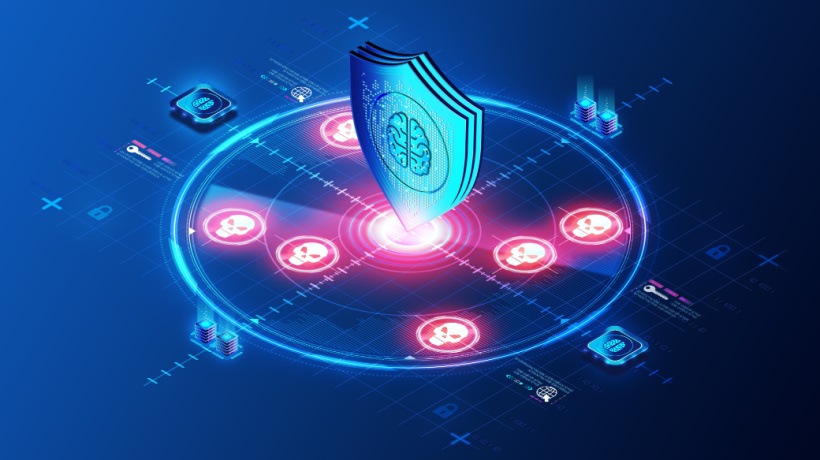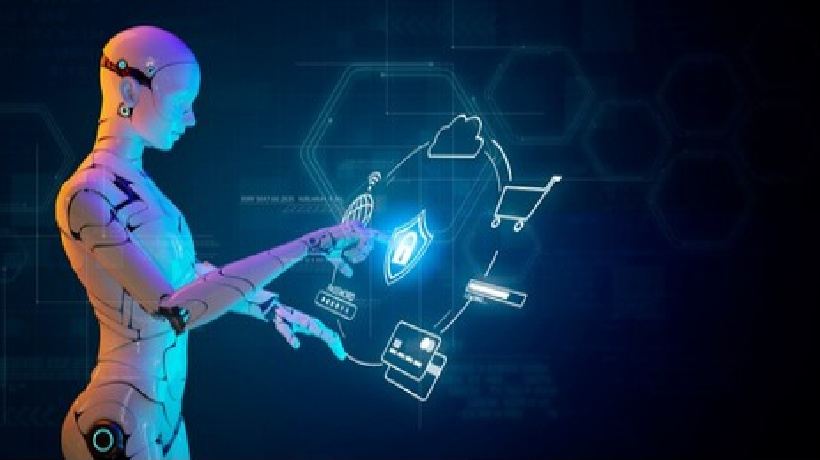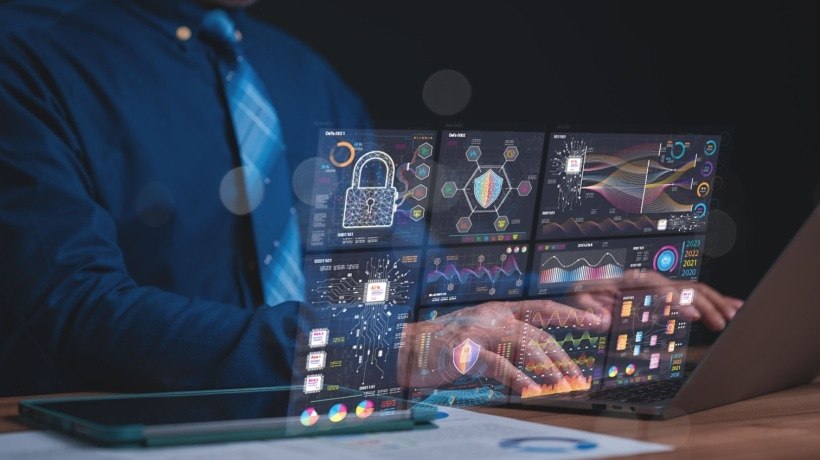Safeguarding Educational Frontiers
In the rapidly evolving landscape of education, the integration of remote and hybrid learning models has become increasingly prevalent. As educational institutions navigate this shift toward virtual classrooms, the imperative to fortify cybersecurity measures has taken center stage. This article explores the pivotal role played by AI-enhanced cybersecurity in ensuring the safety and integrity of remote and hybrid education platforms.
Understanding Cybersecurity Vulnerabilities In Virtual Learning Environments
Assessing Risks In Remote Learning
The transition to online education has unveiled numerous vulnerabilities susceptible to exploitation. Threats such as phishing attacks targeting student data, breaches within Learning Management Systems, and unauthorized access to sensitive information have become more prevalent in remote learning settings.
Challenges Of Hybrid Learning: Security Amidst Diversity
Hybrid learning, amalgamating physical and virtual elements, presents unique security challenges. Striking a balance between accessibility for in-person and remote students while maintaining stringent cybersecurity measures poses a significant challenge for educational institutions embracing this model.
The Role Of AI In Strengthening Cybersecurity For Education
AI-Powered Threat Detection And Prevention
AI-driven cybersecurity stands as a robust defense mechanism against evolving threats [1]. Employing sophisticated algorithms, AI systems proactively identify, analyze, and neutralize potential security breaches in real time, significantly bolstering the security posture of virtual classrooms.
Adaptive Security Measures For Dynamic Educational Environments
The adaptive nature of AI-based cybersecurity solutions is indispensable in the fluid educational landscape. These systems continuously learn from patterns and behaviors, adapting security protocols dynamically to combat emerging threats effectively.
Implementing AI-Enhanced Cybersecurity Strategies In Educational Settings
Cultivating Cybersecurity Awareness Among Students And Staff
Educational institutions must prioritize comprehensive cybersecurity training programs for students and faculty alike. Cultivating awareness fosters a security-conscious culture, minimizing vulnerabilities and promoting responsible digital practices.
Reinforcing Encryption And Authentication Protocols
Integration of robust encryption and multifactor authentication mechanisms forms the cornerstone of safeguarding sensitive data within virtual classrooms. AI-driven enhancements continually fortify these protocols, ensuring resilience against evolving cyber threats.
Evolving Threats In Virtual Learning Spaces
Emergence Of Sophisticated Cyber Threats
As education increasingly moves online, newer and more sophisticated threats emerge. Cyberattacks targeting educational data, ransomware incidents, and data breaches pose significant risks to the integrity and security of virtual learning spaces.
Balancing Accessibility And Security In Hybrid Learning Environments
Ensuring Equitable Access Without Compromising Security
Hybrid learning environments strive to provide equal opportunities for in-person and remote learners. Maintaining this accessibility while upholding stringent cybersecurity measures presents a unique challenge for educational institutions.
The Nexus Between Education And Affiliate Marketing
Leveraging Affiliate Marketing In Educational Platforms
Affiliate marketing presents an innovative avenue for educational institutions to generate supplementary income streams. By collaborating with relevant affiliates, institutions can offer targeted products or services, thereby enhancing the learning experience while generating revenue.
Ensuring Cybersecurity In Affiliate Marketing Collaborations
However, the integration of affiliate marketing in educational platforms necessitates stringent cybersecurity measures. Ensuring encrypted transactional systems and authenticated access becomes imperative to protect both institutional and user data.
Collaboration For Enhanced Cyber Resilience Using AI-Enhanced Cybersecurity
Interdisciplinary Collaboration For Cyber Defenses
Collaboration among cybersecurity experts, educators, and AI specialists is pivotal in fortifying defenses against cyber threats. Pooling multidisciplinary expertise enables the development of robust strategies tailored to address the evolving challenges within educational environments.
The Future Of AI In Securing Virtual Education Spaces
As educational institutions continue to embrace virtual education, the role of AI in fortifying these digital spaces is poised for remarkable evolution [2]. AI's future in securing virtual education environments lies in its ability to adapt and innovate amidst dynamic cybersecurity challenges.
AI-powered predictive analytics is anticipated to become even more refined, offering a heightened ability to foresee and proactively counter emerging threats. Through continuous learning and pattern recognition, AI will enhance its capacity to detect anomalies in real time, thereby fortifying virtual education spaces against potential cyberattacks.
Moreover, the integration of AI-driven automation and response mechanisms will significantly expedite threat mitigation. Rapid identification and neutralization of security breaches will minimize the impact of cyber incidents, preserving the integrity of virtual classrooms and protecting sensitive data.
Additionally, AI's collaborative potential will likely grow, encouraging interdisciplinary partnerships between cybersecurity experts, educators, and AI specialists. This collaborative synergy will drive innovative solutions tailored to the unique challenges faced within virtual education environments.
The future of AI in securing virtual education spaces is encouraging, promising a safer and more resilient digital learning landscape, ensuring a secure, conducive, and uninterrupted learning experience for students and educators alike.
Conclusion: Securing The Future Of Remote And Hybrid Education
In an era where remote and hybrid education models are gaining prominence, fortified cybersecurity measures are indispensable. AI emerges as a formidable ally, offering proactive, adaptable, and intelligent solutions to fortify virtual classrooms' integrity.
By integrating AI-enhanced cybersecurity measures and implementing affiliate marketing strategies cautiously, educational institutions pave the way for a secure and progressive future of learning. This ensures a safe, protected, and conducive digital space where students, educators, and affiliated partners can thrive without compromising data security.









